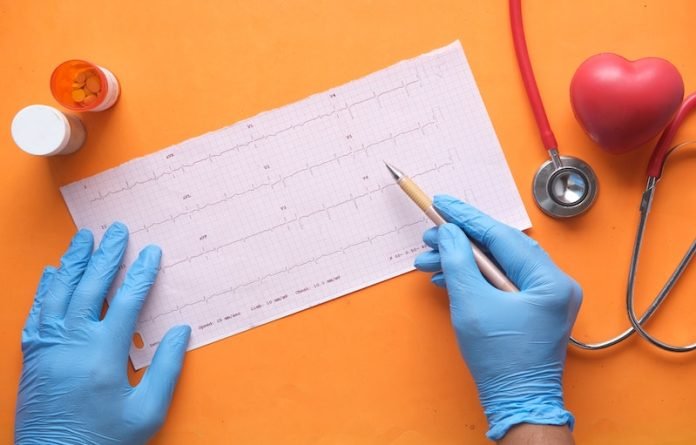
Prior to the COVID-19 pandemic, heart attacks were the leading cause of death worldwide but were steadily on the decline.
In a study from Cedars-Sinai, scientists found that deaths from heart attacks rose strongly during pandemic surges, including the COVID-19 Omicron surges, overall reversing a heart-healthier pre-pandemic trend.
The new study showed that heart attack death rates took a sharp turn and increased for all age groups during the pandemic.
The spikes in heart attack deaths have tracked with surges of COVID-19 infection—even during the presumed less-severe omicron phase of the pandemic.
Furthermore, the data showed the increase was most significant among individuals ages 25-44, who are not usually considered at high risk for heart attack.
In the study, the team used data from the Centers for Disease Control and Prevention’s National Vital Statistics System.
They identified 1,522,699 deaths from heart attacks—medically called acute myocardial infarctions—between April 1, 2012, and March 31, 2022.
The team then compared age-related mortality rates between pre-pandemic and pandemic periods, as well as demographic groups and regions.
They found in the year before the pandemic, there were 143,787 heart attack deaths; within the first year of the pandemic, this number had increased by 14% to 164,096.
Although heart attack deaths during the pandemic increased across all age groups, the relative risk was most significant for the youngest group, ages 25 to 44.
By the second year of the pandemic, the “observed” compared to “predicted” rates of heart attack death had increased by 29.9% for adults ages 25-44, by 19.6% for adults ages 45-64, and by 13.7% for adults aged 65 and older.
The results highlight disparities in mortality that have emerged from the COVID-19 pandemic and that are persisting even through the omicron era.
The possible explanations include that COVID-19 may trigger or accelerate the presentation of pre-existing coronary artery disease, even in younger adults.
Reasons for the spike in heart-related conditions could also be related to psychological and social challenges associated with the pandemic, including job loss and other financial pressures that can cause acute or chronic stress leading to cardiac disease.
If you care about COVID, please read studies about how vitamin B may help fight COVID-19, and this face mask can capture and deactivate COVID-19 virus.
For more information about COVID, please see recent studies that new antiviral drug may block COVID-19 transmission, and results showing when you should get the new COVID-19 booster and the flu shot.
The study was conducted by Yee Hui Yeo et al and published in the Journal of Medical Virology.
Copyright © 2022 Knowridge Science Report. All rights reserved.



